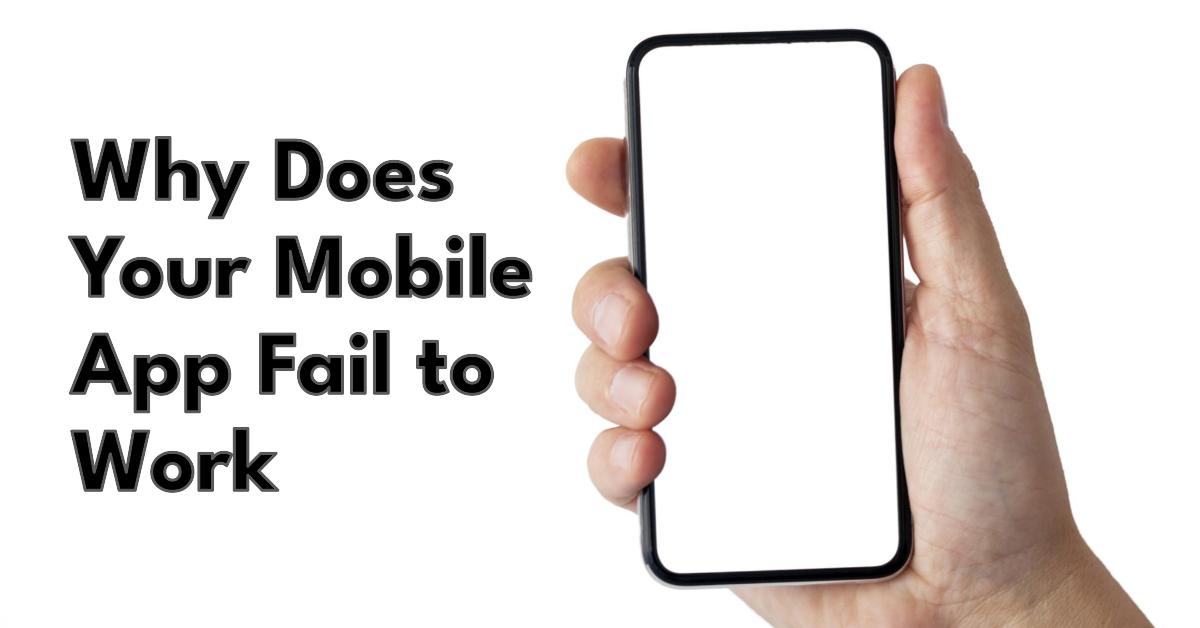Success in the modern, fast-paced digital world depends on a flawless mobile app experience. However, a lot of apps don’t work as planned, which irritates users and makes them stop using them. Have you ever questioned why your mobile application isn’t performing as it ought to? Frequently occurring causes include inadequate testing, outdated designs, infrequent upgrades, and compatibility problems.
Numerous issues, like coding mistakes, insufficient user research, and disregarding platform-specific requirements, might lead to these issues. Recognizing these traps is the first step in debugging and optimizing the functionality of your software, guaranteeing a seamless and enjoyable user experience. In this article, we explore why your mobile app fails to work and offer practical advice on how to prevent it.
Top 6 Causes of Mobile App Failure
Mobile applications have become a necessary part of our everyday lives in the current digital era. These applications, which range from social networking to banking, are essential to our daily interactions for work, play, and communication. However, it frequently happens that mobile apps don’t work as intended, which irritates users and eventually makes the app less successful. This article will examine the typical causes of mobile app failure and offer suggestions for resolving them. So, stay with us here and keep reading below.
1. Ambiguity in Mobile App Platform
If you don’t know the demographics of your target audience and what mobile devices they prefer, you could be in for some serious difficulty, regardless of whether your application is designed for the iOS or Android platform. Apps that fail do not just suffer from problems with performance, quality, or user experience; they also fail because the developer neglected to thoroughly research the platform.
In the world of mobile-first, getting apps designed for the iPhone and Android platforms is standard. Additionally, it’s fantastic if your audience is active on both channels. Therefore, you can get mobile app development Dubai services to ensure the best performance of your mobile app.
2. Feature Imbalance
Due to their inability to properly balance features, many programs are deleted after only one use. The qualities are either very abundant or insufficient; finding the ideal balance calls for significant thought and comprehension. Both insufficient and excessive functionality in an app has the potential to mislead consumers and influence them to choose something more tailored to their needs.
One way to differentiate your app from the competition is to provide distinctive features. Apps that don’t set themselves apart by providing something special or better are less likely to attract and retain users. Identifying and emphasizing important differentiators can increase the app’s appeal as it is being developed.
3. Unoptimized App Performance
Apps that are not optimized cause users to become disinterested. Poor optimization is one reason mobile apps don’t work well. Network protocol errors, bandwidth limitations, and coding problems can all contribute to app speed optimization failure. App failures may result from neglecting App Store Optimization.
Excessive internet usage can be discouraging, particularly in areas with expensive data plans or sluggish network speeds. This problem can be mitigated by optimizing data utilization by reducing background data, compressing data, and giving users control over data-intensive functions.
4. Avoidance of Beta Testing
It may surprise you to learn that just 4-6% of apps are released bug-free. A mobile app must undergo sufficient testing and iteration to fulfill its intended function. Beta testing will improve product awareness, gather user feedback, and assist in finding flaws. Thorough testing may be costly and time-consuming, but it will ensure that your product operates flawlessly.
5. Shaky Backend Support
It is particularly valid for e-commerce and gaming apps. App stability requires strong backend support. Now that you have access to cloud technology, it’s time to adopt quicker and more effective support and storage options. The applications’ inability to handle traffic spikes has been noted on multiple occasions, which has an impact on user retention and app loyalty as well as the functioning of your product.
6. Inaccurate Monetization Strategy
A poorly thought-out monetization strategy may impact an app’s viability. Maintaining a balance between making money and giving users something of value is crucial.
Causes:
- The overuse of advertisements may negatively impact the user experience.
- Inappropriate pricing is defined as a price that is out of line with users’ expectations and the value offered.
- Utilizing just one monetization strategy or having limited options.
Solutions:
- Balanced Ads: Use them sparingly to prevent interfering with the user’s experience.
- Competitive Pricing: Establish rates that are both competitive and commensurate with the value offered.
- Diversified Monetization: Investigate several ways to make money, such as through in-app purchases, memberships, and premium features.
So, if you want your mobile apps to seamlessly perform their functionality, you need to invest in mobile app development to bestow the best user experience.
Are you Ready to get Professional Mobile App Services?
The process of developing a successful mobile app is complex and calls for user-centered design, thorough testing, effective marketing, and close attention to detail. By comprehending and resolving the typical causes of app malfunctions, developers can optimize their app’s functionality, guarantee customer contentment, and attain sustained prosperity. Keep in mind that the secret to an app’s success is its capacity to seamlessly and joyfully satisfy user needs efficiently and effectively.

